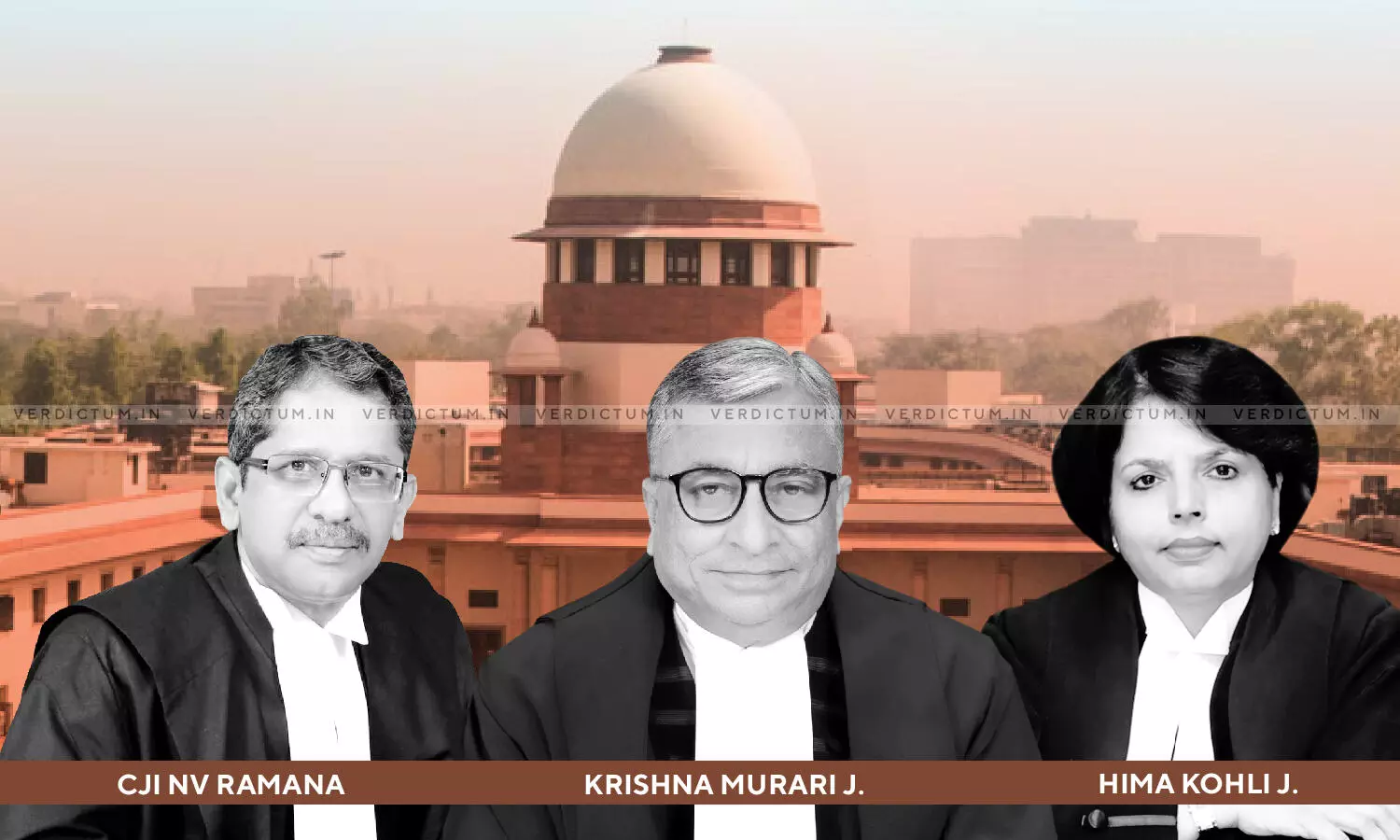
Testimony Of Witness In Criminal Trial Cannot Be Discarded Merely Because Of Minor Contradictions - SC Reiterates
 |
|A Supreme Court Bench of Chief Justice N.V. Ramana, Justice Krishna Murari and Justice Hima Kohli heard two connected appeals challenging the common judgment passed by the Patna High Court regarding offences under Section 324 of IPC and Section 27 of the Arms Act.
The Bench placed reliance on Narayan Chetanram Chaudhary & Anr. Vs. State of Maharashtra and observed, "the testimony of a witness in a criminal trial cannot be discarded merely because of minor contradictions or omission."
Senior Counsel Mrs. Anjana Prakash appeared for the Appellants. Mr. Abhinav Mukerji and Mr. Saket Singh appeared on behalf of the Respondent. Mr. Gaurav Agrawal appeared for the intervenor.
The injured informant had stated that the Appellants had attacked him, along with the other two accused, with the mala fide intention of killing him, owing to an altercation. The Accused had attacked the informant with guns and spears. The FIR was registered on the same day but it was only forwarded to the Court of Chief Judicial Magistrate after two days.
The Trial Court had convicted the Appellants along with the co-accused under Section 307 read with Section 34 IPC. They were sentenced accordingly. The Appellants were also held guilty under Section 27 of the Arms Act. The four accused filed 2 sets of appeals before the High Court, challenging their conviction and sentence.
In the appeal preferred by the two co-accused, the High Court set aside their conviction and sentence, and they were exonerated. In the appeal filed by the two Appellants, the High Court modified the conviction to Section 324 IPC and reduced the sentence. However, their conviction and sentencing under Section 27 of the Arms Act were confirmed. The Appellants then preferred an appeal before the Supreme Court.
The Counsel appearing for the Appellants vehemently argued that there was no material available on record to indicate the recovery of any bullet or pellets. Further, there was an absence of any explanation for the delayed submission of the FIR to the Court of Chief Judicial Magistrate, which makes the story doubtful. The Counsel pointed out contradictions in the statements of the prosecution witnesses and contended that the contradictions cast a serious shadow of doubt on the genuineness of the prosecution story. Therefore, it was prayed that the Appellants have been wrongly convicted and are liable to be discharged.
The Counsel appearing on behalf of the Respondent and the intervenor contended that the High Court after analyzing the statement of the witnesses has rightly convicted the Appellants and there is no illegality in the impugned order and it must not be interfered with.
After analyzing the statements of the witnesses, the Supreme Court opined that although there were minor contradictions with respect to the time of the occurrence of injuries, the constant narrative of the witnesses was that the Appellants were present at the place of occurrence armed with guns and they caused the injury.
Relying on the judgment passed in Narayan Chetanran Chaudhary & Anr. vs State of Maharashtra, the Court opined that only contradiction in material particulars and not minor contradictions can be a ground to discredit the testimony of the witnesses.
The Court also appreciated the evidentiary value of a medical witness, and held that "a medical witness is very crucial to corroborate the case of prosecution and it is not merely a check upon testimony of eyewitnesses, it is also independent testimony, because it may establish certain facts, quite apart from the other oral evidence".
Analyzing the provisions of Section 324 of IPC, the Bench held the charge of Section 324 of IPC must stand as it is evident from the evidence of prosecution witnesses that the Appellants have caused hurt on the body of the informant, and that there existed the previous enmity between the parties.
The Court held that since there is a charge against the Appellants under Section 324 of IPC of voluntarily causing injuries by firearm, they cannot escape the punishment for using arms prescribed by Section 27 of the Arms Act.
Therefore, the Court opined that the High Court had rightly convicted the Appellants for offences punishable under Section 324 of IPC and Section 27 of the Arms Act. The Bench found that the appeals lacked merits and were accordingly dismissed.
Click here to read/download the Judgment